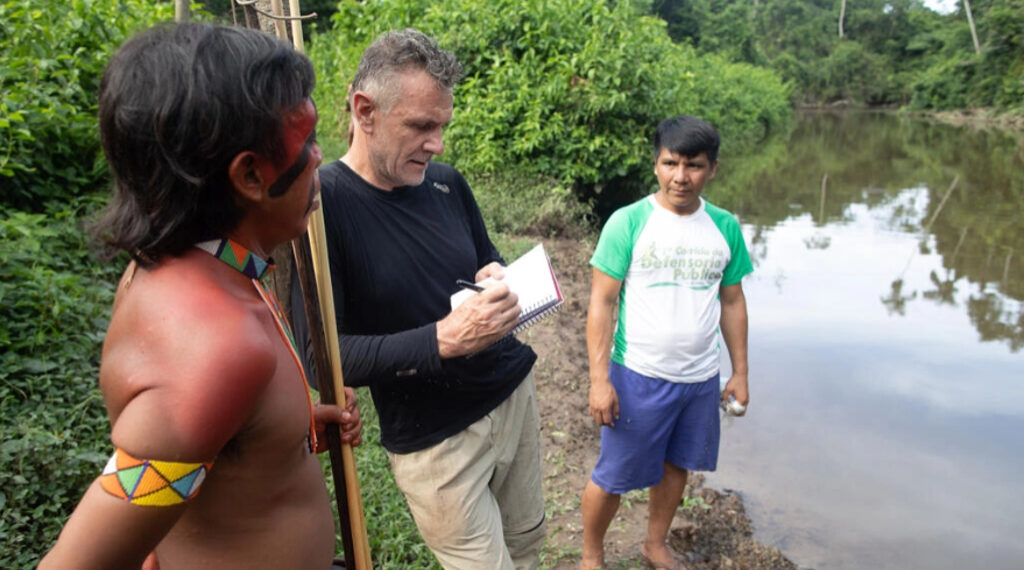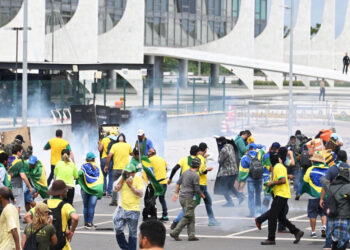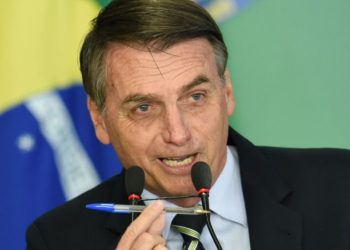A British journalist and a Brazilian indigenous expert have gone missing in a remote region of the Amazon rainforest after receiving threats, authorities and indigenous-rights groups said Monday, raising fears for their safety.
Veteran foreign correspondent Dom Phillips, 57, went missing while researching a book in the Brazilian Amazon’s Javari Valley with respected indigenous expert Bruno Pereira, said The Guardian newspaper, where Phillips has been a longtime contributor.
The pair had traveled by boat to Jaburu lake, in the northern state of Amazonas near Brazil’s border with Peru, and were expected to return to the city of Atalaia do Norte by around 9:00 am Sunday, two rights groups said in a statement.
The men had “received threats in the field” last week, said the groups, the Union of Indigenous Organizations of the Javari Valley (UNIVAJA) and the Observatory for the Human Rights of Isolated and Recently Contacted Indigenous Peoples (OPI).
They did not give further details, but Pereira, an expert at Brazil’s indigenous affairs agency FUNAI with deep knowledge of the region, has regularly received threats from loggers and miners trying to invade isolated indigenous groups’ land.
FUNAI told AFP it was collaborating with local authorities on the search effort. It added that Pereira was on leave from the agency “to pursue personal interests.”
Phillips and Pereira had traveled to the region around a FUNAI monitoring base, and reached Jaburu lake Friday evening, UNIVAJA and OPI said.
They started the return trip early Sunday, stopping in the community of Sao Rafael, where Pereira had scheduled a meeting with a local leader to discuss indigenous patrols to fight the “intense invasions” that have been taking place on their lands, the groups said.
When the community leader did not arrive, the men decided to continue to Atalaia do Norte, about a two-hour trip, they said.
They were last sighted shortly after near the community of Sao Gabriel, just downstream from Sao Rafael.
The pair were traveling in a new boat with 70 liters of gasoline — “sufficient for the trip” — and were using satellite communications equipment, the groups said.
The federal prosecutors’ office said it had dispatched police to investigate and activated a search operation, to be led by the Brazilian navy.
Two initial searches by indigenous locals “with extremely good knowledge of the region” have found no trace of the men, said UNIVAJA and OPI.
‘Time of the essence’
The missing men’s families voiced alarm, along with high-profile organizations and figures including Brazilian ex-president Luiz Inacio Lula da Silva.
“We implore the Brazilian authorities to send the national guard, federal police and all the powers at their disposal to find our cherished Dom,” Phillips’s sister’s partner, Paul Sherwood, wrote on Twitter.
“He loves Brazil and has committed his career to coverage of the Amazon rainforest. We understand that time is of the essence.”
The Committee to Protect Journalists and Brazil’s Foreign Press Correspondents’ Association (ACIE) also voiced their concern and urged the authorities to act “immediately.”
“I hope they are fine, safe and will be found quickly,” tweeted Lula, the front-runner for Brazil’s October presidential elections against far-right incumbent Jair Bolsonaro — who has faced accusations of fueling invasions of indigenous lands in the Amazon with his pro-mining and -agribusiness policies.
The Guardian said in a statement it was “very concerned” about Phillips, whose work has also appeared in The New York Times, The Washington Post and other leading media.
“We condemn all attacks and violence against journalists and media workers. We are hopeful that Dom and those he was traveling with are safe and will be found soon,” it said.
Phillips, who is married and based in the northeastern city of Salvador, had previously accompanied Pereira in 2018 to the Javari Valley for a story in The Guardian.
The 85,000-square-kilometer (33,000-square-mile) reservation is home to around 6,300 indigenous people from 26 groups, including a large number with virtually no contact with the outside world.
FUNAI’s base there, set up to protect indigenous inhabitants, has come under attack several times in recent years. In 2019, a FUNAI officer there was shot dead.
























